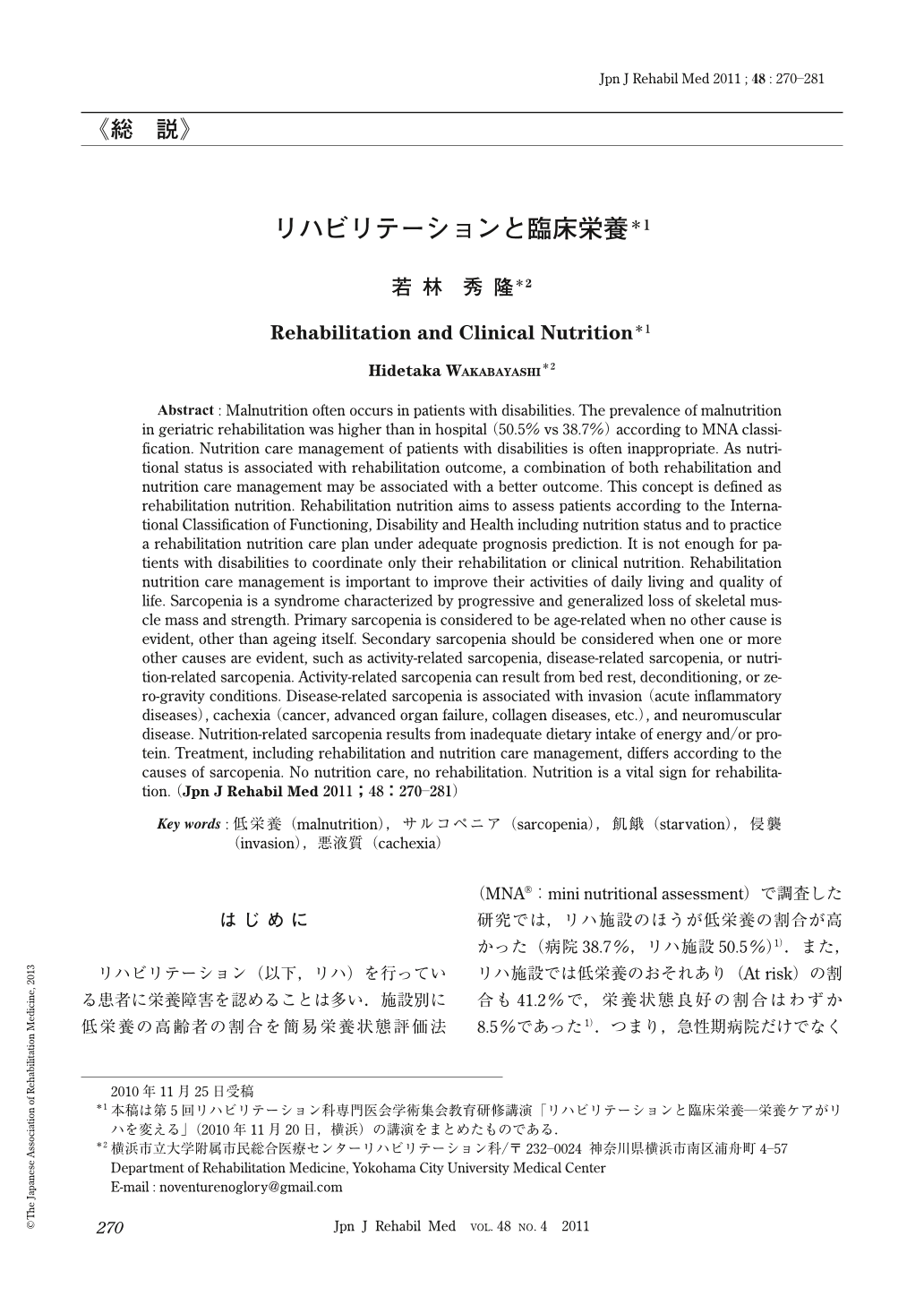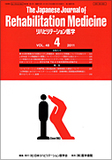Japanese
English
- 販売していません
- Abstract 文献概要
- 1ページ目 Look Inside
- 参考文献 Reference
はじめに
リハビリテーション(以下,リハ)を行っている患者に栄養障害を認めることは多い.施設別に低栄養の高齢者の割合を簡易栄養状態評価法(MNA®:mini nutritional assessment)で調査した研究では,リハ施設のほうが低栄養の割合が高かった(病院38.7%,リハ施設50.5%)1).また,リハ施設では低栄養のおそれあり(At risk)の割合も41.2%で,栄養状態良好の割合はわずか8.5%であった1).つまり,急性期病院だけでなく回復期リハ病院にも低栄養の患者が多いといえる.
リハの対象疾患で低栄養を認めることが多い疾患には,廃用症候群2),脳卒中3),脳性麻痺4),パーキンソン病5),褥瘡6),大腿骨頸部骨折7,8),関節リウマチ9,10),SLE11),強皮症12,13),癌14,15),慢性心不全16),慢性閉塞性肺疾患16)などがある.
Abstract : Malnutrition often occurs in patients with disabilities. The prevalence of malnutrition in geriatric rehabilitation was higher than in hospital (50.5% vs 38.7%) according to MNA classification. Nutrition care management of patients with disabilities is often inappropriate. As nutritional status is associated with rehabilitation outcome, a combination of both rehabilitation and nutrition care management may be associated with a better outcome. This concept is defined as rehabilitation nutrition. Rehabilitation nutrition aims to assess patients according to the International Classification of Functioning, Disability and Health including nutrition status and to practice a rehabilitation nutrition care plan under adequate prognosis prediction. It is not enough for patients with disabilities to coordinate only their rehabilitation or clinical nutrition. Rehabilitation nutrition care management is important to improve their activities of daily living and quality of life. Sarcopenia is a syndrome characterized by progressive and generalized loss of skeletal muscle mass and strength. Primary sarcopenia is considered to be age-related when no other cause is evident, other than ageing itself. Secondary sarcopenia should be considered when one or more other causes are evident, such as activity-related sarcopenia, disease-related sarcopenia, or nutrition-related sarcopenia. Activity-related sarcopenia can result from bed rest, deconditioning, or zero-gravity conditions. Disease-related sarcopenia is associated with invasion (acute inflammatory diseases), cachexia (cancer, advanced organ failure, collagen diseases, etc.), and neuromuscular disease. Nutrition-related sarcopenia results from inadequate dietary intake of energy and/or protein. Treatment, including rehabilitation and nutrition care management, differs according to the causes of sarcopenia. No nutrition care, no rehabilitation. Nutrition is a vital sign for rehabilitation.

Copyright © 2011, The Japanese Association of Rehabilitation Medicine. All rights reserved.


